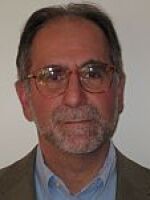I was pleased that Governor Peter Shumlin honored Vermont’s 2014 Winter Olympians. This celebratory event reminded me how inspiring I always find the Olympics to be, including this year’s Winter Games.
All the medal winners overcame obstacles to reach the podium. The Ukrainian women’s biathlon relay team pushed aside the threatened breakup of their homeland just long enough to win gold. Forty-year-old Norwegian biathlete Ole Einar Bjorndalen outskied and outshot men half his age to win two gold medals, the 12th and 13th of his record-setting career. And teenage American alpine skier Mikaela Shiffrin slew the demons of youth and inexperience to defeat a field full of veteran competitors in the women’s slalom. Bjorndalen’s grizzled determination and Shiffrin’s buoyant confidence can inspire anyone who feels too old to continue or too young to start living a childhood dream.
For me, Bjorndalen, Shiffrin and the Ukrainian biathletes conjured up images of bygone athletes who overcame their own demons to conquer the world at the Olympics. No two people could have started out more differently in life than 1956 figure skating gold medalist Tenley Albright and the 1964 gold medalist in the 10,000 meter run, Billy Mills. But both athletes beat the odds to win gold and have led wonderfully productive lives ever since. Tenley Albright was a surgeon’s daughter from Boston who overcame polio to dominate women’s figure skating during the first half of the 1950s while taking a full load of pre-med courses at Radcliffe. After winning a silver medal at the 1952 Olympics, followed by gold in 1956, she retired from skating to compete in another unforgiving venue, Harvard Medical School, after which she became a physician and later a medical researcher.
In contrast, Billy Mills began life on the Pine Ridge Indian Reservation in South Dakota, where too many dreams die young, swept away by a toxic tide of despair, violence, and alcoholism. But Mills powered past all the pathologies, earning All-American honors in cross-country at the University of Kansas, becoming a Marine Corps officer, and charging from behind to win the gold in Tokyo, beating his previous best time by fifty seconds. After retiring from competitive running, Mills became a successful businessman, a motivational speaker, and an advocate for Indian youth.
I hope everyone listening will take a dollop of inspiration from these athletes’ stories and those of Vermont’s 2014 Olympians, sprinkle it on his or her own dream, and then make that dream come true.




